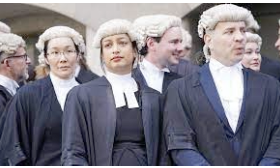The attempt to regulate barristers’ online speech is deeply troubling.
It’s a terrible thing when people are sacked or punished by their employers for expressing their opinions. But there is at least a saving grace. If your boss stops you from speaking your mind on religion, politics or trans rights, you can always just go and work for someone else.
However, professional governing bodies are now getting in on the act of policing speech, which risks taking workplace censorship to a new and alarming level. After all, a sanction from one of these organisations will not only take away your right to work at a particular workplace – it can also leave you blacklisted from the profession altogether. It would essentially deprive you of your livelihood.
In light of this, two pieces of guidance released last month by the Bar Standards Board (BSB), which regulates barristers, should trouble us all.
In its Guidance on the regulation of non-professional conduct, the BSB explicitly states that it will investigate a barrister’s private Facebook posts if they contain, for example, violent sexual fantasies and sexual slurs directed at women.
Such speech is undoubtedly abhorrent. But so too is the notion of barristers being professionally disciplined for expressing their personal opinions outside of work. Plus, if we open the door to this censorship the list of unacceptable speech will only expand.
The BSB’s new Social Media Guidance isn’t much better. It has a catch-all provision that will potentially outlaw privately ‘sharing communications or hyperlinks to content posted by others which are seriously offensive, discriminatory, harassing, threatening or bullying, without making it clear that you disagree with the content’. Simply linking to a vitriolic attack on a public figure, unless accompanied by a po-faced statement of disagreement, could be treated as a case of professional misconduct.
The BSB claims to champion free speech. But the notion of free speech it has in mind is little more than the crabbed version permitted under Article 10 of the European Convention on Human Rights. Barristers are pointedly reminded in the guidance that there’s a plethora of speech that the European Court of Human Rights (ECHR) has declared unprotected under human-rights law, including xenophobia, Islamophobia and Holocaust denial. Taking the ECHR’s rulings as gospel, the BSB clearly sees suppression as well within its remit.
The guidance makes it clear that barristers should watch what they say at all times. ‘While the right to hold a view and say something may be protected by Article 10’, it says, ‘if there is something objectionable about the manner in which it is expressed, this could be a potential breach’. In other words, if you express views that are entirely lawful in an ‘objectionable’ manner – whatever that means – you could land yourself in serious trouble with a body capable of depriving you of your career.
[…]
Source




